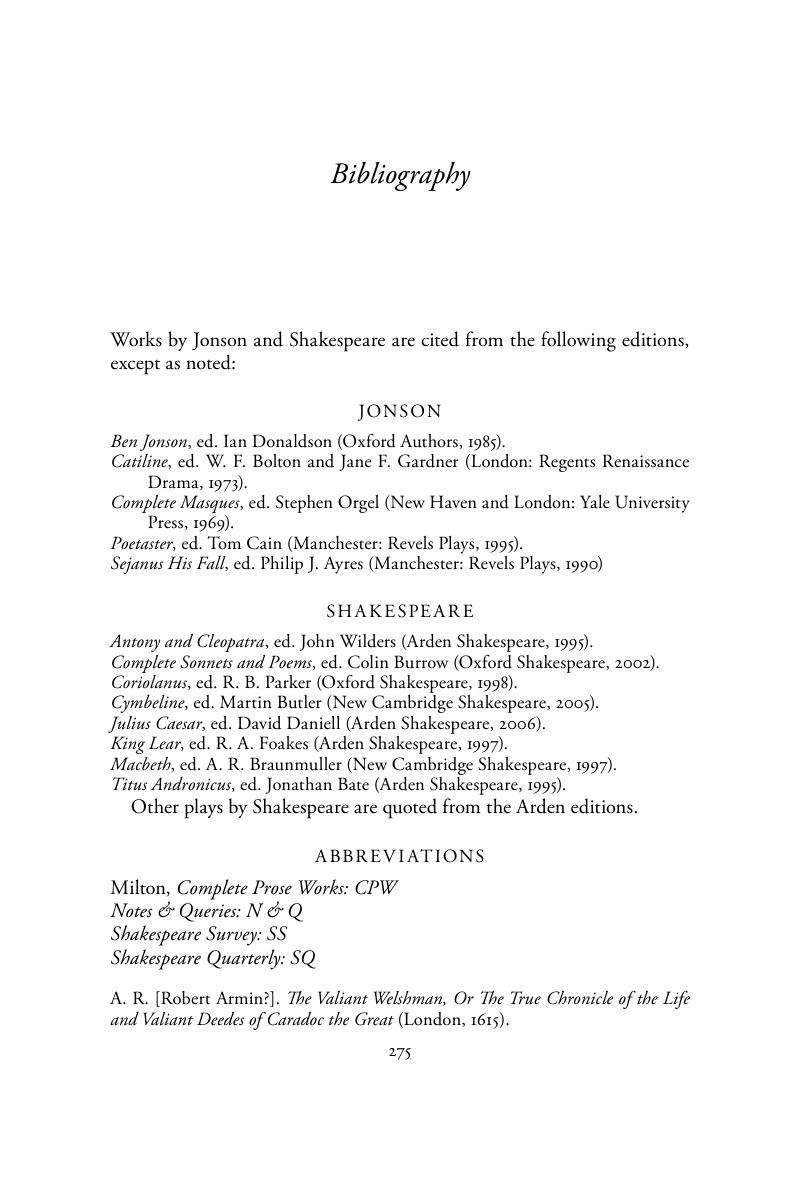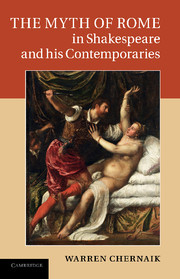Book contents
- Frontmatter
- Contents
- Acknowledgements
- Introduction: a Roman thought
- 1 Roman historians and the myth of Rome
- 2 The wronged Lucretia and the early republic
- 3 Self-inflicted wounds
- 4 ‘Like a Colossus’: Julius Caesar
- 5 Ben Jonson's Rome
- 6 O'erflowing the measure: Antony and Cleopatra
- 7 The city and the battlefield: Coriolanus
- 8 Tyranny and empire
- 9 Ancient Britons and Romans
- Postscript: Shakespeare and the republican tradition
- Notes
- Bibliography
- Index
- References
Bibliography
Published online by Cambridge University Press: 29 March 2011
- Frontmatter
- Contents
- Acknowledgements
- Introduction: a Roman thought
- 1 Roman historians and the myth of Rome
- 2 The wronged Lucretia and the early republic
- 3 Self-inflicted wounds
- 4 ‘Like a Colossus’: Julius Caesar
- 5 Ben Jonson's Rome
- 6 O'erflowing the measure: Antony and Cleopatra
- 7 The city and the battlefield: Coriolanus
- 8 Tyranny and empire
- 9 Ancient Britons and Romans
- Postscript: Shakespeare and the republican tradition
- Notes
- Bibliography
- Index
- References
Summary

- Type
- Chapter
- Information
- The Myth of Rome in Shakespeare and his Contemporaries , pp. 275 - 290Publisher: Cambridge University PressPrint publication year: 2011



